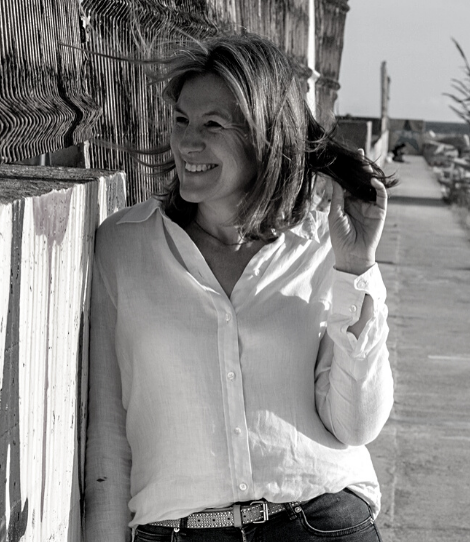Divorcing with dignity is a choice, even in a high-conflict situation. The earlier on in the process you make that decision and commit to it, the easier it will be. Will it make divorce easy? No. Divorce will still be hard, even when it’s your idea.
As a recovering lawyer, my post-lawyer career is built on supporting women to divorce with dignity. Here’s my advice on divorcing with dignity.
Are you asking the right questions?
Often, I work with women in high-conflict situations. But frequently the only conflict is the internal one within the woman herself. What about the children? How will I manage financially? How will my husband cope? What if I regret my decision?
I always say: What if you don’t? What if divorce brings you freedom, exhilaration, joy and release? Sometimes, the choice to be in a relationship is replaced with the choice to leave.
I firmly believe in choice. I have a right to choose what I do with my life, my career, my body and my relationships – as all women should. I can choose to stay or go. My happiness is my responsibility. I can’t lay my happiness at the door of my partner, nor have I the responsibility to make him happy.
Midlife is about reassessing where I’ve been, how far I’ve come and what I want next! My husband may be part of that and maybe he isn’t. It’s not that relationships are disposable like coffee cups, it’s about the possibilities of new relationships that meet my needs now – romantically and platonically and re-embracing the joie de vive once reserved for the twenty-somethings.
What divorce is like in midlife
Starting a new adventure with all the wisdom, love and battle scars of a life well-lived: We stay in relationships through choice and we can leave through choice. I’m not talking about the abused woman too afraid to leave. The woman who doesn’t have choice. I’m talking to women like Sarah who has the freedom to choose and to choose again.
Choice: Sarah’s story
Sarah married Tony because he was a good guy. A sensible guy. Sarah was a successful career woman who liked to party. When her biological clock moved from a gentle reassuring tick-tock to the loud shrill of an alarm clock, Sarah thought she’d better settle down with a good guy. That guy was Tony.
For several years Sarah was contented with her choice. Tony wasn’t a big earner, but he was calm and dependable. Sarah was happy to be the breadwinner. When Sarah contacted me 18 months ago, she felt guilty. Tony was a nice guy. Nothing was really ‘wrong’, but nothing was really ‘right’ either. Sarah wrestled with her choice. Should she stay or should she go?
When I asked her what advice she’d give her daughter if, in 30 years time, she felt the same in her own marriage, Sarah gulped and said, “Oh, right then”. Did Sarah leave there and then? No.
Ultimately the marriage ended a short time later over a lonely courgette at the back of the fridge (it’s another story). Every marriage that ends has its own story.
Being the woman who leaves
There’s still a stigma around being a woman who leaves. Yes, even in 2021. Even though we are working women, CEOs, mothers of accomplished children, we fear criticism and judgement for ‘breaking up the family’, especially after many years of marriage.
It can take courage to choose a different life. The rewards are priceless however. Divorce gave Sarah her freedom back. The right to be herself. The right to not eat the lonely courgette in the fridge because, actually, she fancied a pizza night with her friends.
Your divorce plan starts with you at its core. It starts with what you need. Not financially, not long term.
Whilst many aspects of Tony frustrated her, Sarah wanted to be kind. She wanted to honour him and through the choices she made, she did – and still does. Tony is free to be himself. Without blame, Sarah took responsibility for the choices she had made and she made different ones. She agreed a fair financial settlement with Tony reflecting his important role in their family and ensured he could continue to live close to their daughter. Dignity and respect right there.
When the choice to leave isn’t yours
When you didn’t choose divorce, you can feel blindsided. Shock, anger and fear consume you whole, and spit you out. You feel your dignity is on the floor, particularly if you are the last to know that your marriage is over. Even when divorce is not your choice, you can choose to divorce with dignity.
Putting yourself first
I believe that every woman should have a divorce plan whether her divorce is amicable or high conflict. Whether divorce is her idea or not. Having a plan from the get-go keeps you grounded when all kinds of crazy happens – and it will. For those days when you question your sanity and your ability to see it through, your plan will be there. This is particularly important if your divorce is high conflict or it wasn’t your choice.
Your divorce plan starts with you at its core. It starts with what you need. Not financially, not long term.
It’s about what you need right now – in this moment. When our immediate needs are met, a sense of calm comes over us. We feel safer, more grounded. We have the ability to respond rather than react.
When we react, dignity can fly out of the window.
Have a divorce plan
I believe that a divorce plan is the key to a brighter future. Rather like a birth plan, your plan is all about you. A divorce plan enables you to take control of your life. If you can afford the support of a solicitor fantastic, but you are more than capable of going it alone with the right support if you have to or choose to.
What happens when you don’t have a plan: Jane’s story
Jane (55) had been with her husband James since she was 17 years old. When she came to me at the beginning of the pandemic she was exhausted financially and emotionally. She’d already spent thousands on her divorce and hadn’t made much progress. She felt defeated. Jane didn’t have a plan. She didn’t know what money the family had, and importantly she didn’t know what she wanted. She’d set off on a journey when she didn’t know the destination.
Because Jane didn’t know how much the family was worth, she avoided looking at the numbers. She felt uneducated and stupid. We started our work together looking at what was important to her – the life she’d led during her marriage and the hopes she had for her future. Possibilities that excited her began to emerge.
The more Jane became invested in the possibilities that awaited her on the other side of divorce, the more her confidence grew. Jane was now ready to look at the family finances, and to see ways in which they could support the future life she was now looking forward to. Dignity and respect for herself enabled her to confidentially assert her needs.
Your Divorce with Dignity Plan
- Start with your values. Ask yourself, “What is important to me”?
- What is my reality? Your plan should be grounded in reality
- Is my divorce high conflict? How do I protect myself?
- Who do I need on my divorce team? Coach, solicitor, therapist, financial planner?
- What budget do I have for the divorce? How can I best utilise it to support me.
- What might my husband include in his divorce plan? Consideration of your husband’s position and perspective is crucial to managing your divorce and enabling you to respond rather than react.
- Where can I be flexible? This is why your values are key – they allow you to be flexible in your negotiations.
WHAT SHOULD BE INCLUDED
- Finances – An assessment of current and future needs (this will help with Form E)
- Housing needs – Where will you live that is affordable now and in the future?
- Arrangements for your children – Can these be agreed?
- Career – Consider your career. Will you need to provide for yourself financially? Do you have a capital need to start a new career and financial support whilst you do this?
- Mental health – What emotional support do I have currently and what else do I need?
Finally…
It’s all about your husband
There are high-conflict men, and there are many amazing men. Men who struggle with divorce. Men whose sense of identity is threatened when their financial status is compromised. It can be a scary and lonely place for them too. A good divorce plan and the ability to divorce with dignity will consider your husband: how he’ll react and what his needs will be. Awareness of his behaviour, wants, and needs will keep you safe if necessary, and help you divorce with dignity and respect where possible.
Emma Heptonstall
divorce
View All
Being Punjabi and divorced shouldn’t define my life
Aged 40 and divorced, Minreet Kaur had to overcome ingrained prejudice to regain her independence

Picture: Getty Images
Divorce advice for women: 10 top tips
When you’re contemplating divorce, it’s vital to think ahead. Get 10 top tips from a divorce veteran



I am happy to support anyone going through this, individually. Having gone through a horror of a time, because of a husband’s philandering ways so bringing up 2 children alone and with little financial support, I have almost every T shirt going and wear them with pride. Happy to support someone going through similar….I am way out of the other side, children now adults in professional jobs. It can be done.